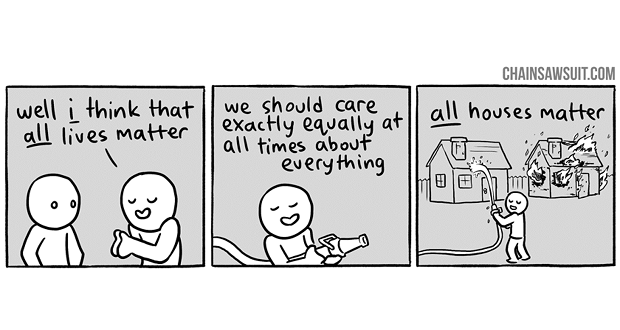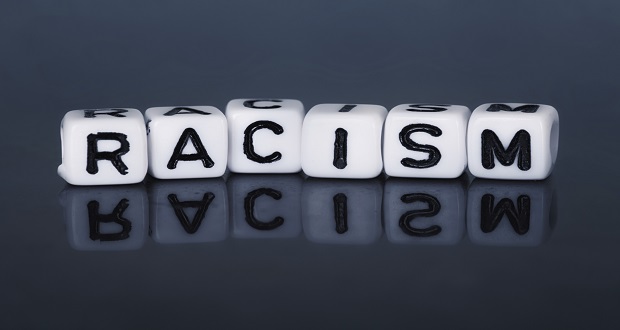
Emotional Toll: The extra effort it takes daily to be personally subjected to microaggressions, discrimination, inequities, and/or violence, or hear the stories of such from others and be able to manage the fear, frustration, anger and other emotions that result.
Black (and other historically oppressed groups) Fatigue: Repeated variations of stress from systemic racism that result in extreme exhaustion and cause mental, physical and spiritual maladies that are passed down from generation to generation.
I am writing a book entitled Black Fatigue: How Racism Erodes the Mind, Body and Spirit that will be released in September. It was inspired by a number of millennials of color I have encountered over the past couple of years who have declared it is exhausting to do this work. They tell me that it is fatiguing to keep educating white people, the dominant group—who don’t seem to understand the inequities that we still face—and that it is not their responsibility to do so. The emotional toll is too great. This generation, now the largest population cohort, “cancels” people for racist, sexist, homophobic, ageist words and actions. They are not as willing as my generation to educate because it is so emotionally draining. Perhaps they think that, after at least 200 years of struggle, others should know that progress across many indicators, especially socio-economic ones, has been slow if it has come about at all.
I guess, at first, I was surprised that a generation younger than mine would describe the work as exhausting. I used to tease and say, “How can you be fatigued? You are 30 years old. I, on the other hand, am legitimately tired.” I stopped saying that, realizing that I needed to listen and learn from their lived experiences.
It is not surprising that it is the Millennials who are changing the narrative. It is always the younger generations who galvanize to protest injustices differently from their parents. Martin Luther King, Jr. was 26 years old when he started, Malcolm X was 27. What is different with this generation of young activists is that they are not willing to accept the responsibility of teaching their dominant group counterparts about the history and the lack of progress towards equity and justice. They are not willing to accept the excuses made by so many in dominant groups of “I did not know” (ignorance), or “it is better than it was” (minimization) or “I don’t see race” (dismissal). After centuries of a collective fight for equity and justice, this generation is saying it is not alright to plead ignorance. It is not alright to not recognize unearned privilege and it is not alright to expect us to teach you. It is fatiguing.
Until I started earnestly listening to Millennials explain the toll of this work, I guess I would not have admitted to being exhausted. Maybe I did not think that I had permission to say that after almost 4 decades in the field, I am fatigued. I thank younger folks for awakening me to the exhaustion that I had undoubtedly suppressed, ignored, or did not connect to the work. I normalized it and felt somewhat guilty if I wanted to take a break. The narrative in my head was: “I don’t feel no ways tired” (words from a popular gospel song), or “You gotta be strong,” or “Keep on keepin’ on.” I guess day in and day out, year after year, I just kept working 70-80 hours per week, not being in tune with the symptoms. The toll of running my own business—regardless of the type of organization—is, in and of itself, fatiguing. Compound that with leading a diversity and inclusion consulting firm, where you are constantly confronted with resistance to the idea of inclusion and often feel that you are on the defensive, justifying the work, even with those organizations who declare that they are striving to create inclusive cultures.
Until I started earnestly listening to Millennials explain the toll of this work, I guess I would not have admitted to being exhausted. Maybe I did not think that I had permission to say that after almost 4 decades in the field, I… Share on XI asked several corporate Chief Diversity Officers to share the emotional labor and fatigue of doing DEI work. These are the words of a very savvy, highly respected Chief Diversity Officer in a major organization. These comments are representative of what I heard from others:
As a CDO, I am always pounding my head against the wall, unable to have real and sustainable impact on our organizations. I have served in this role in three organizations and, in each instance, the senior most leaders have convinced me that they wanted to advance D&I in their organizations and lured me in. Yet, after about 6 months in the job, the honeymoon has consistently been over. Those budget dollars you are promised never come. You don’t have a seat at the tables where critical business and people decisions are being made, your recommendations for policy and practice changes are often ignored, and your work is always an afterthought. Once you bring to leadership’s attention the issues you have uncovered and the work that needs to be done to move forward, they get defensive and consistently push back, demanding more and more data and empirical proof that the experiences of their underrepresented recruits and professionals are real… In the meantime, the underrepresented professionals in your organization are looking to you as their Savior and are convinced you are going to save the day for them. Little do they know that you cannot! This conundrum has me very weary and I have become more pessimistic than I ever thought I would be. My days in this work are quickly coming to an end as I realize that it is killing my very spirit – I refuse to continue banging my head against the wall.
As a consultant and friend to a number of these CDOs, it is fatiguing to hear stories like the one above and know that you can do little to alleviate their situation other than empathize, commiserate, share self-care techniques, and often just be a good friend.
What is most fatiguing for me is that those sentiments shared by this preeminent CDO are not new and could have been voiced 35 years ago, when I first started my business. The fact that we have made little progress in correcting inequities for historically marginalized groups—not only in the corporate arena, but in all other aspects of society, including public education, socio-economics, criminal justice, political access, health care outcomes—is fatiguing. Just this week, in discussing projects with three different clients this is what I heard:
Client # 1: “I thought we had 90 minutes with the CEO and his direct reports, but now we only have an hour. We need to get buy-in from them so we can accelerate the progress. The board wants us to move fast.”
Client # 2: “We have so many other priorities. This work can’t be seen as something extra. We just don’t have the time.”
Client # 3: “We have tried to do diversity in different iterations for the past 30 years, but nothing seems to stick. Now the board is pushing us, but I am not sure that leadership is really ready.”
How can you take years of deeply entrenched systems, condense it into an hour, and expect results? When will leadership be ready? What have you been doing for the last 50, 30, 10 years? I have had these types of conversations with clients for 35 years, and they are fatiguing.
How can you take years of deeply entrenched systems, condense it into an hour, and expect results? When will leadership be ready? I have had these types of conversations with clients for 35… Share on XWhen I hear Millennials declare that they are exhausted and not willing to be the educators of the ignorant, I am gravely concerned. The inequitable systems will continue to be exhausting for Millennials and Generation Z (Born after 2000) to navigate, whether they are teachers or not. The micro-aggressions, discrimination and violence will not stop. The emotional toll leads to all manners of physical and emotional problems, many of which go undetected and which we will explore in upcoming posts. Lifting the burden of educators will not eliminate the day–to–day fatigue, nor will it dismantle racist systems.
How can we manage the emotional toll and fatigue?
Don’t accept “Be strong” messages: As Thamara Subramanian wrote, resilience alone is not the answer. Being strong and bouncing back does not correct inequitable systems. It is okay to be vulnerable. It is okay to declare that you are exhausted and slow down, check out for a while without feeling guilty. Take care of yourself. As part of this series, we’ll also be exploring specific ideas for self-care.
Focus conversations on systems inequities: Even though fatigue happens at the individual level, there are underlying systems that cause it. If you are in a position to share with dominant groups, make connections between the ways systems perpetuate the status quo.
Not a teacher, but a role model: If you are tired of teaching, let your day to day actions model authentic, inclusive behavior. Try to consistently show up as your authentic self. It is a form of teaching that perhaps does not require the same emotional toll.
Support each other: Those of us who do the work are not always the best at mutual support. There is still a schism between those who do the work in corporate settings versus the social justice sphere. We can be very judgmental of the different approaches that are taken to achieve the same end. Both camps want equity and justice, and we should look for more ways to collaborate rather than polarize. We don’t need to compound the emotional labor that is required in getting support from the naysayers.
Recruit more power brokers: Historically marginalized groups cannot move systems towards equity and justice alone. We need those who have the power to dismantle entrenched systems to work with us. Allies are needed too, but allies don’t always have the power to effect change at the systems level. Allies can minimize the emotional toll and fatigue by acknowledging the plight of historically marginalized groups, empathizing with us, speaking up and out for justice so we don’t always have to.
Allies can minimize the emotional toll and fatigue by acknowledging the plight of historically marginalized groups, empathizing with us, speaking up and out for justice so we don’t always have to. Share on XThe Equity and Social Justice movement today is moving too slowly and even regressing for a number of socio-political reasons that seem almost impossible to stop. This is leading to an exacerbation of the already high level of fatigue that this work entails. We have to acknowledge and address the emotional toll because our physical, mental, and spiritual well-being depend on it.


















